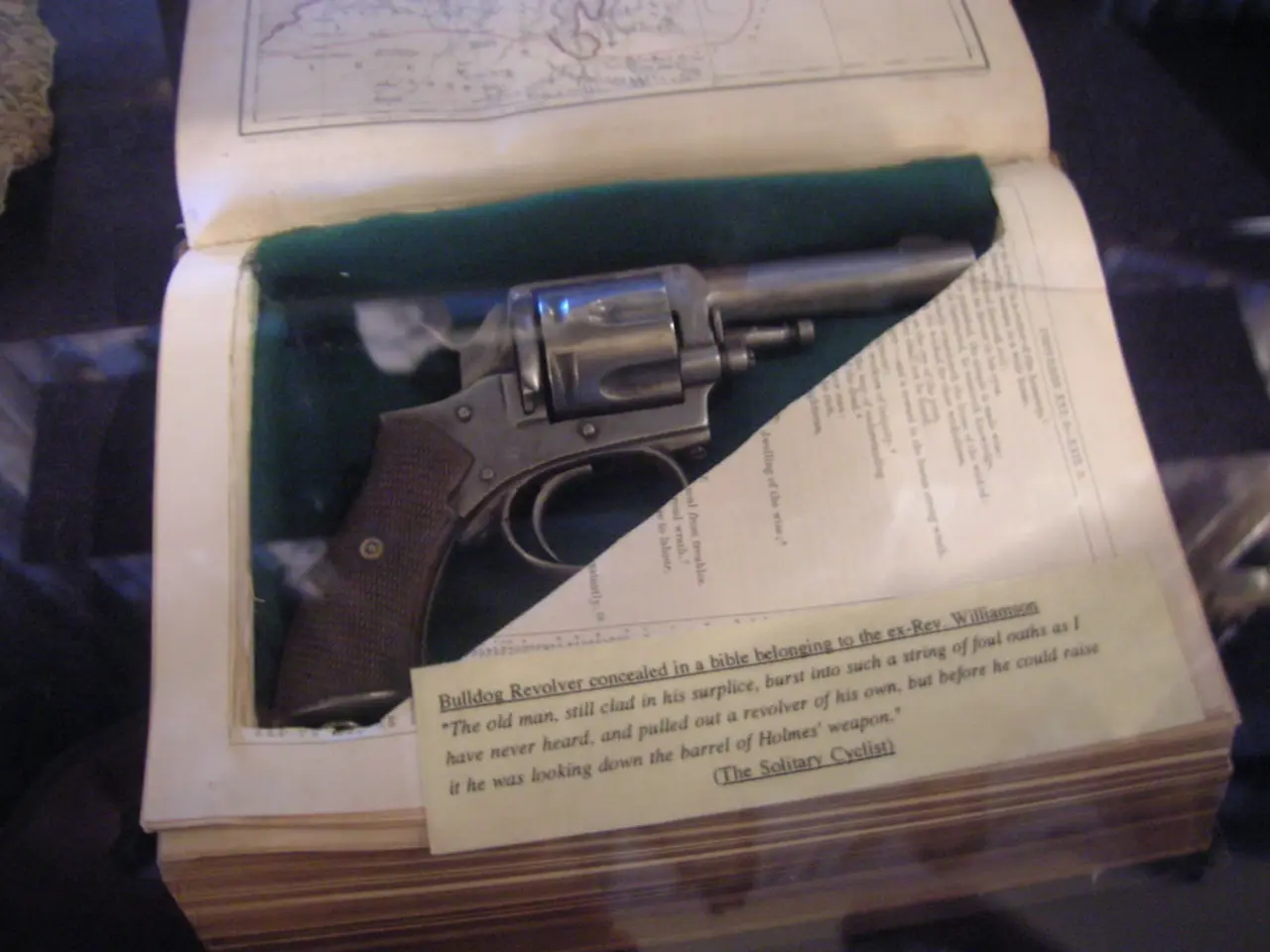Navigating Texas Firearm Regulations and Personal Liberties
In the Lone Star State, Texas, the rules surrounding firearms can be complex. Here's a straightforward guide to help you navigate the state's gun laws.
As of 2025, Texas allows individuals who are legally entitled to possess firearms to openly or conceal carry a handgun without a License to Carry (LTC) in public places, thanks to a 2021 law amendment (source [3]). However, those who are prohibited under state or federal law from possessing firearms still cannot carry them.
When it comes to background checks, Texas generally follows federal law, requiring background checks on gun sales by licensed dealers. Private sales without background checks are still permitted under state law, but those prohibited from owning firearms cannot legally purchase or possess them (source [3]).
Texas law lists specific places where firearms are always prohibited, including certain government buildings, schools (K-12), polling places during voting, and secured areas such as courtrooms and racetracks. Property owners or persons in control can generally decide to prohibit firearms by posting legally required notices (source [3]).
Local governments in Texas cannot create or maintain gun registries, and officials who violate this can face criminal charges (source [1]). No government-run gun buyback programs are allowed starting September 2025 (source [2]).
Several bills attempting to expand carry rights were blocked in 2025, such as lowering the age to 18 or allowing firearms at polling places (source [4]).
It's essential to remember that firearms should not be in plain view while being transported in a vehicle, even if open carry or concealed carry is allowed (source [5]). In Texas, open carrying of handguns is legal for most individuals over 21, except for those with felony convictions or certain misdemeanors (source [6]).
When transporting firearms in a vehicle in Texas, the gun must be in a holster or concealed (source [7]). Texas law requires that handguns be securely carried in a holster or other carrying device when engaged in open carry (source [8]).
Proper knowledge of Texas gun laws helps make the best decisions and avoid potential pitfalls. Responsible gun ownership benefits everyone and ensures adherence to the laws governing firearms in Texas.
If you have any doubts about Texas gun laws, always seek legal advice. Legal experts can provide insights and represent your interests effectively when dealing with Texas gun laws (source [9]). Knowing who to turn to for legal advice is key to protecting your rights in Texas.
Some places where concealed carry is prohibited in Texas include sporting events, bars, and hospitals. Understanding Texas gun laws is essential for every resident of the state. For exact prohibited locations and any recent updates, consulting the Texas Penal Code and official state law resources is recommended.
Sports enthusiasts in Texas should take note that while open or concealed carry of handguns is legal for most individuals over 21, certain locations such as sporting events might prohibit firearms. It's crucial for sports fans in Texas to familiarize themselves with the specific areas where concealed carry is forbidden to ensure they adhere to the state's gun laws.








